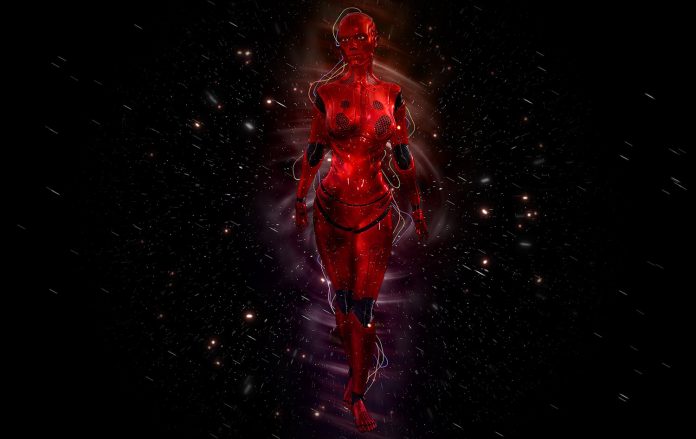
in a guest post on Chuck Wendig’s blog, Alex White shares five things he learned writing August Kitko and the Mechas from Space.
- It’s foolish to anthropomorphize computers. “We talk about what a camera is ‘looking at,’ or what an algorithm ‘thinks,’ but that’s a skewed mental model of a different reality when it comes to computing,” White says. “We can’t treat them like they’re people–substitutes for humans in the decision loops of our society—because they will always fail us.”
- The robot rights debate is boring. “An AI not a person with hopes and dreams,” White writes. “It’s a whirring, ticking automaton with a human face stretched over it at best. There are no beliefs, just the training data that engineers fed into it for science kicks. Robots don’t need rights.”
- Existentialist and action-packed aren’t mutually exclusive. Action stories often fail to let their characters think, in deference to….well, acting. In his novel, White shows characters making small meaningful choices that don’t move the world, but do matter to them.
- Relationships give life meaning. “Perhaps the measurement of our lives isn’t the years we commit to the void of time or even the rippling impacts of our grand aspirations—but the tender moments we have with others, being seen as our true selves,” White writes.
- It’s okay to write yourself into the story. “There’s often a backlash against writers putting themselves in the story,” White notes. “As a result, most of us try to hide our identities in our work, placing little packets of ourselves into characters instead of treating the novel like a dim mirror of our own lives. Don’t listen to the backlash.”










